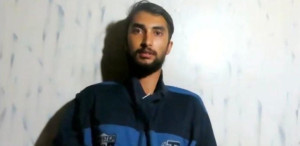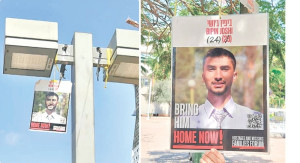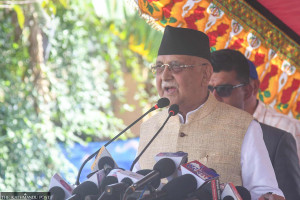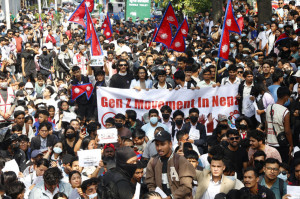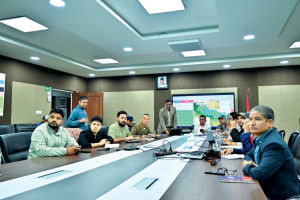National
Training for parents helps improve parent-child relationship
Kanti Children’s Hospital and Nepal Mental Hospital have started parent management training.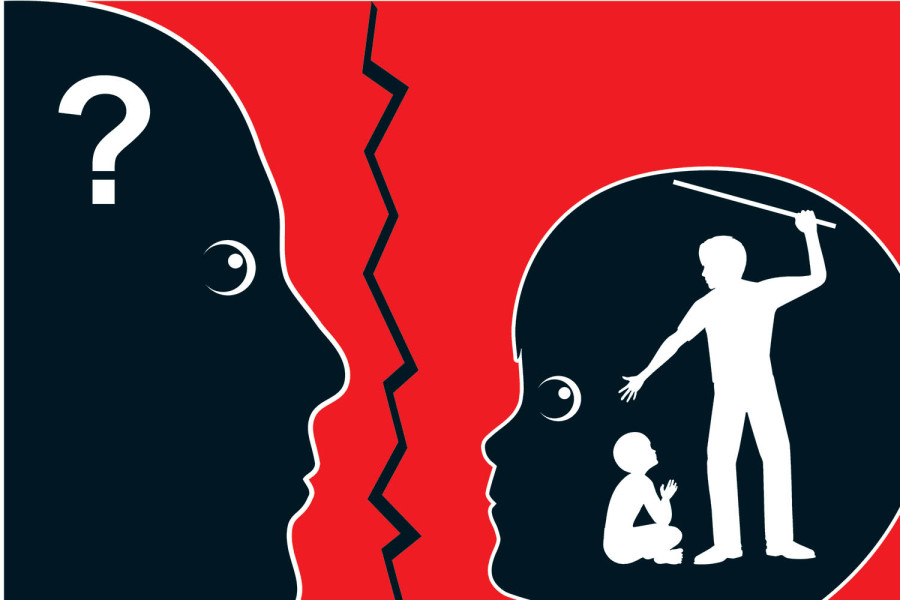
Post Report
Last month, an elderly man from Pokhara visited psychiatric doctors at Kanti Children's Hospital and complained about the disruptive behaviour of his grandson. He told the doctors that his son and daughter-in-law, who live abroad, had left their 14-year-old son with them.
“My grandson does not want to go to school and demands money every day,” Dr Arun Raj Kunwar, a child psychiatrist serving at Kanti Children’s Hospital, quoted the elderly man. “When he did not get the amount he sought, he couldn't control his temper, became aggressive, and vandalised things. He lacks focus on studies as well.”
This was a common problem for many parents and grandparents whose children or grandchildren displayed non-compliance, short temper, impulsive behaviour, rules-breaking behaviour, and excessive aggression.
To address such problems from which hundreds of parents have been affected, the Kanti Children’s Hospital and Nepal Mental Hospital have started ‘parent management training’, under which behaviour training techniques are provided to parents but not children.
“Many parents have already taken parent management training and have given us positive feedback,” said Kunwar. “In the aforementioned case, too, grandparents took one week’s training. They told us that their grandson has given up his disruptive behaviours, his social behaviour has improved, and he has also started performing better in school.”
Mental health experts say parent management is an approach to training parents to alter their child’s behaviour at home. Trainers use specific procedures to alter interactions with their children to promote social behaviour. Although parents' management training is applied to address various problems of children, it has proven to be effective in addressing pre-adolescent problems.
“Only the parents take part in the training,” said Dr Ananta Adhikari, director at Nepal Mental Hospital. “We impart individual training to some parents and in a cohort to some others.”
Doctors say special skills are required to address challenging children behaviour more effectively. Parents will practise the skills they learned in the hospital at home. Parents have to attend several sessions, but many parents from outside the Valley only attend a few classes.
“Many people do not know that training parents will help improve children’s behaviour,” said Adhikari. “Those who think that they are in real trouble due to the changing behaviour of their children can approach our hospital and learn some skills.”
Experts say inappropriate child behaviour is sometimes associated with an adverse environment in homes, parents' circles, and friends' circles. Hormone changes also affect child behaviour. If children start behaving rudely, parents should figure out the actual problems instead of resorting to violence or scolding them.
“The parent management training is designed to lessen parent-child conflicts and improve the love and behaviour of children,” said Adhikari.
Parent management training is a treatment procedure that aims to change parenting behaviour, improve the parent-child relationship, and teach parents to improve their children’s behaviour—aggression and short-temper. Trainers encourage parents to focus on the positive sides of children.
Apart from providing parents with management training, health authorities have been preparing to screen children’s and adolescents' mental health conditions. Officials at the Ministry of Health and Population said that around 150 health workers, including medical officers, nurses, and paramedics, will be trained to screen this age group's mental health conditions within the current fiscal year.
A report of the National Mental Health Survey Nepal-2020 shows that the prevalence of mental disorders among adolescents was 5.2 percent that year, and the neurotic and stress-related disorders were the most prevalent at 2.8 percent.
Likewise, the prevalence of current suicidal thoughts among adolescents was around four percent, while suicidal attempt in the same age group was 0.7 percent. The same report also shows that 0.6 percent of children and adolescents were found to have been suffering from depression.
The prevalence of suicidality, including current suicidal thoughts, lifetime suicidal attempts and future likelihood of suicidal thoughts, was found to be prevalent in the 7.2 percent population.
Experts say that mental health problems in children and adolescents could be several times more than what the survey shows. They say that around 10 to 15 percent of the total children and adolescent population could have been suffering from various types of mental health issues, and due to methodological problems, the survey could not portray actual problems.
“Children and adolescents could suffer from various types of mental health problems, including attention deficit hyperactivity disorder, anxiety, depression, conduct disorder, obsessive-compulsive disorder, and post-traumatic stress disorder,” said Adhikari, director at Nepal Mental Hospital. “But few parents and teachers realise the problems and seek medical attention. Children get scolded and beaten both at schools and at home.”




 18.12°C Kathmandu
18.12°C Kathmandu





